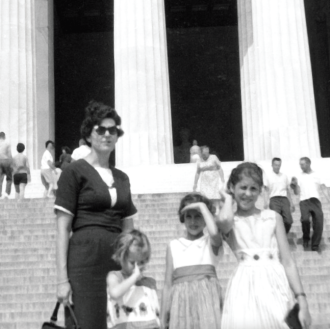This article appeared in the August 2010 issue of Texoma Living!.
Summers Past
by Edward Southerland
Summer seemed longer when we were young. It stretched from the end of May into the far distant September, and the prospect of using up that apparently endless collection of days seemed almost impossible. Each week seemed like a month, each month like a year.
The dominant memory is of shimmering heat rising in light-bending waves off the thick drifts of fine dust that powdered the country roads and of the stickyasphalt of city streets, soft under foot when you stepped off the curb. The heat was tangible. You could push a hand through the afternoon and feel the heat push back.
The counterpoint was water. Sprinklers slapped the evening with water for lawns fast turning brown in summer’s oven. Water fans rattled and dripped and shoved cool wet air into overheated bedrooms and parlors. Small children played in plastic wading pools, jumping in and out and running through the grass until the clippings made brown and green socks on their bare feet.
Darkness brought small relief. The sun abandoned its assault on the earth, but then the ground began to radiate its accumulation of heat into the night. It was a circular, slow and wearing process, carried out while the drone of June bugs under the street lamps competed in the heavy air with the cries of children playing games deep into the last sprinkles of daylight.
In time the sky would lose its colors, and the gray shadows turn black. The children, finally caught short by the expenditure of so much energy in such short time, would slide between cool white sheets and into dreams of days to come. As they slept, their elders would gather on screened porches, armed with funeral home fans and tall glasses of iced tea, and talk quietly in the dark. In short time the grownups, too, would leave the night to the crickets and katydids.
The coolness arrived with the early hours before dawn. For a few hours, until the sun rose toward noon, bringing the temperature with it, the world was pleasant and crisp and green. The calendar moved one day ahead, the promise of autumn one day closer.
Helen Johnson
My sisters and I always looked forward to summer. For us, it meant free time with friends on our block, water fun, and always, always, always, a family vacation. For whatever reason (maybe it was being overseas in Europe during WWII) my father loved to travel, and he often spent the winter months planning where we would go the following summer. For him the planning was almost as much fun as the trip itself.
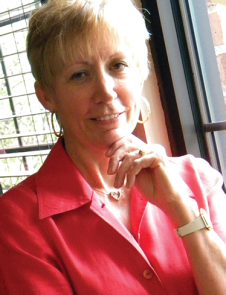 Growing up in Houston, we girls always wanted to spend time at the beach in Galveston. Unfortunately, the beach was not my father’s favorite; but we did go once or twice each year. Those were the good old days when you could drive down the sea wall on West Beach in Galveston and still park on the beach. Riding the waves in an inner tube, and back then they really were inner tubes, from a car or truck tire, was the highlight of the day.
Growing up in Houston, we girls always wanted to spend time at the beach in Galveston. Unfortunately, the beach was not my father’s favorite; but we did go once or twice each year. Those were the good old days when you could drive down the sea wall on West Beach in Galveston and still park on the beach. Riding the waves in an inner tube, and back then they really were inner tubes, from a car or truck tire, was the highlight of the day.
As I looked back over old pictures for this article, I marveled at two things over and over again. We took vacations in the 50s and early 60s in cars without air conditioning and had fun. Six of us, my parents, grandmother, two sisters and I, drove to Corpus Christi and Brownsville in May of 1959 in a ’57 Chevy. It couldn’t have been that cool in South Texas in May, and in the pictures we were all dressed up, but we still had fun.
In the summer of 1962, we went to Washington, D.C., accompanying my father who had business there. As we toured the monuments and visited the Capitol, my father was in a suit. Of course, he had called ahead and made an appointment with our representative, Bob Casey, and I guess my dad wanted to dress appropriately. I don’t recall thinking that my parents looked different from anyone else around us. I think everyone just dressed up more in those days.
I also found a couple of pictures of my first trip to Denison in October, 1952. My parents had married in April of that year in Virginia and daddy wanted to introduce my mother to his aunts who lived in Denison. Mom’s four months pregnant with me in these pictures.
Helen Johnson’s first visit to Denison was pre-birth, but she decided it was a good place to come back to. Helen is very active in preserving the area’s heritage. She and Michele Castle were the driving forces behind the new Red River Railroad Museum, and she is active in the Grayson County Historical Society.
Cindy Baker Burnett
“I’ll transform this beauty into a traveling headquarters like Charlie Goodnight’s chuck wagon,” my dad announced, as he gazed proudly at our new 1958 Buick Estate Wagon.
My dad had replaced our 1953 Buick Roadmaster with something that could accommodate a Coleman stove, five army cots, an aluminum percolator, a set of enamel camp plates, and an Ash Flash lantern. Planning for few stops on our summer road trip to Acapulco, Daddy anchored a Thermos water jug to the luggage rack on the over-packed car. The rubber hose that ran from the jug’s spigot through the window had a clamp at the end so we could get a drink of water.
Since my dad stopped the car only to bury somebody, my sister Kathy and I avoided the hose. Not my brother Tim. He slurped the hot, rubber-tasting water with apparent gusto, and had to rely on the “Motorman’s Friend,”—an empty bottle Mama had wisely stowed away in the corner of the backseat.
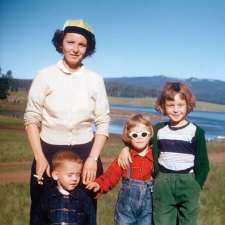
Like most men, Daddy hated to stop and ask directions, and Mama had stopped reading road maps in 1957 when Daddy accused her of moving the Mississippi River over two states. Consequently, we explored every dead-end road in South Texas and blazed trails where only covered wagons had been.
Daddy started the vacation at five in the morning. Picking her way through the darkness, Mama guided our arms and legs through our clothes. It was like threading a needle with cooked spaghetti. We continued to sleep while she walked us to the car and arranged us in the back seat. We overlapped like a stack of cold, sticky pancakes and as dawn broke, we lay there and listened to the hog and grain markets on the car radio. In between the Omaha cattle futures, I heard Mama say she wished we could mail ourselves to Mexico and not endure the long hot trip. She said she should never have given birth to more children than we had car windows, and she dreamed of a trip where she didn’t have to cut up everyone’s meat or listen to a car radio that picked up more static than music.
“Are we almost there?” . . . “Is it over the next hill?” . . . “Why can’t I sit in the front seat?” . . . “Stop throwing your weight around, Cindy!” . . . “Daddy, I think you’d better stop the car a minute.” “Why? Is somebody throwing something again?” “Yes.” “Who?” “Tim.” “What’s he throwing?” “Up.”
“Don’t you think we should stop and fix a bite to eat?” Mama asked, as we approached Nuevo Laredo. “Why?” answered Daddy. “We just got rolling.” “We got rolling at five this morning,” Mama said. “It is now two-thirty in the afternoon and my vision is beginning to blur. I feel like I’m in a getaway car.” Desperate for something to eat, Mama rummaged in her handbag. “I’m in luck,” she shouted. “Here are three breath mints, one for each kid.”
Cindy Baker Burnett is a lifelong resident of Texoma. She grew up in Bonham and lives there today. Cindy is best known for her humorous columns “Crowsfeet Chronicles,” seen weekly in the Herald-Democrat and other newspapers across the U.S.
Al Hambrick
During my childhood, I was blessed to have loving parents who ensured that the needs of their children were always a priority. I was also fortunate to grow up in Larue, a quiet East Texas community southeast of Athens in Henderson County. It was a place where adults throughout the neighborhood were united in their support of young people of the area. Christian values, character, service, and respect for elders were modeled on a daily basis. Caring adults in the community provided summer jobs for me as well as other youth.
During the summer of 1974, I and most of my teammates on the La Poynor High Flyers basketball team worked together for a man named Carl Stringfi eld, who ran the maintenance department for the school district. Working together every day allowed our team members to develop strong relationships and grow together as young men.
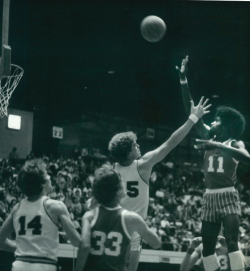
We worked hard, mowing, cleaning, painting, and repairing around the school, but we also spent two to three hours a day in the gym working at basketball. Rainy days meant four to five hours in the gym. There was a feeling of accomplishment at the end of each long day because of the tremendous encouragement we got from Mr. Stringfield. I had the opportunity to serve as a crew leader at work and gym leader in basketball practice. As team members, we were given the opportunity to work out for basketball on our own, without a coach.
Our coach was Bill Ingram. This remarkable man took the Flyers to four straight state championship games, and I played in all four. We won three state titles, and in my senior season, we fi nished the season without a loss.
Shortly before the 1974-75 season, Coach Ingram had a heart attack and was forced to miss most of the year. The school administration and athletic staff trusted me and the other seniors to coordinate the varsity basketball practices each day without a coach. The elementary principal, Dewayne Nichols, came in for the last hour of practice each day. This leadership responsibility, which we had really developed in the summer of ’74, helped the seniors lead La Poynor to a 39-0 record before Coach Ingram returned to the team to coach the regional and state tournament games. We ended the season 44-0 and won our third Class B title in four years.
The summer of 1974 was significant because it provided the foundation for my belief in the positive correlation power between believing, sacrifice, hard work, team work and achievement. I believe this summer experience was a great experience for me because it continues to impact my approach to service and working with people. I am thankful for summer 1974. On June 12, 2010, I went back to Larue for a reunion, saw Carl Stringfield again, and thanked him once again for that wonderful summer of 1974.
Al Hambrick is the Superintendent of Sherman Independent School District. He grew up in East Texas and was an athlete of note during his high school years in the mid-70s. He attended Austin College and eventually came back to Sherman to run the school district.
Kim Teel
Summer has always been my favorite time of year, and I attribute that to the many good memories that were made during the summers of my childhood. My family had the luxury of living only fifteen minutes away from both sets of our grandparents, aunts, uncles, and cousins, and we spent many summer weekends together. Sounds cliché, but things really were much simpler then. My favorite summer memory cannot possibly be wrapped up in one event, as there were several that would contribute to my list of favorites over the years.
My Nanny and Papa Cloud’s house was the source of many of my childhood summer favorites. My brother and I were the only grandchildren on my father’s side of the family, so we were a bit spoiled by our doting grandparents. At Nanny Cloud’s house, we could do just about anything our hearts desired. When we needed a snack, we would go to the backyard and pick peaches, and Nanny would peel them and cover them with sugar. When we were bored, and it was too hot to sit still, Nanny would turn on the water hose and let us create the world’s biggest mud puddles under the trees. Nanny didn’t care if we played hide and seek in the sheets that hung on the clothesline…even when we accidentally knocked them down and they fell in the mud puddles.
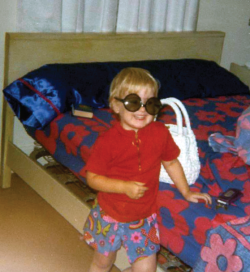
When we were in need of a little commotion, we would head over to our Nanny and Papa Tull’s house. There were ten cousins on my mother’s side of the family, and we could always count on at least a handful of us showing up at the same time. Even though there were a lot of us, Nanny Tull always found a way to make each of us feel special. She always had a big hug and an ice cold Pepsi waiting for us when we arrived. When it was just girls at Nanny’s, she would let us play dress up for hours using all her dresses and fabulous costume jewelry. We would all dress up and then put on musical concerts for her and Papa Tull. They would sit for hours and listen to our wailing as we sang “Delta Dawn” and “American Pie” using a hairbrush as a stand in for a mike. We took many family vacations, and though they were an important part of my childhood, some of the best memories happened right at home or in the homes of my grandparents. My grandparents all passed away many years ago, but the memories we made with them are always with me. I see all of the best qualities from my grandparents in my parents who now have grandchildren of their own…my two boys. My new summer memories are the ones wrapped up in the delight of my own children as they arrive at Nanny and Papa Cloud’s house, where they are the stars of the show every time they arrive.
Kim Teel is Dean of Grayson County College’s South Campus in Van Alstyne. She is a wife and a mom.

